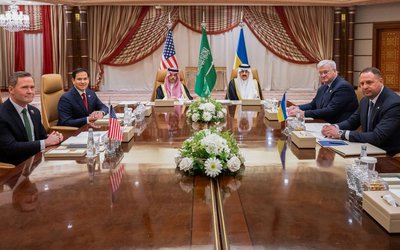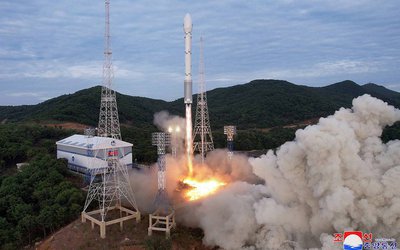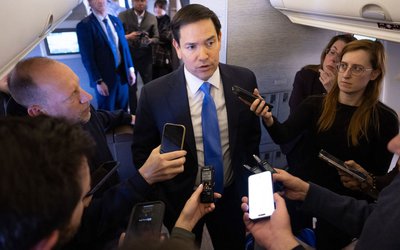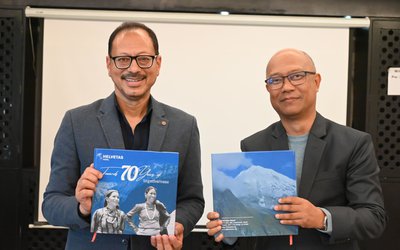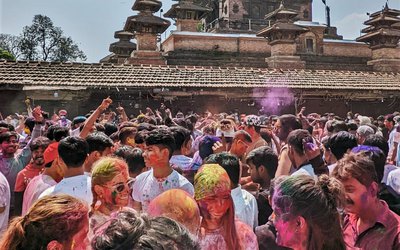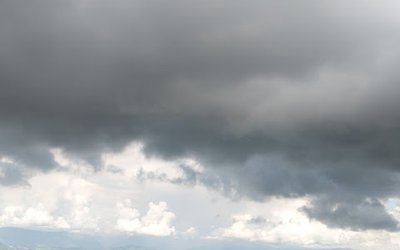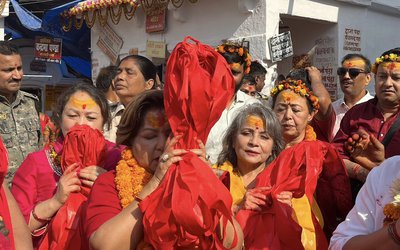
With ITs domestic politics in disarray, the key actors in Nepal’s polity now seem to hold outsiders guilty for everything that is going wrong. Nepal’s journey towards a radical political agenda — denying traditional forces and institutions any space — and the simultaneous peace process that first brought the Maoist insurgents to the mainstream 11 years ago had these “outsiders” as trusted partners and catalysts.
The twin processes relied on them. Both the local actors — the half dozen top leaders of as many parties — and the key foreign diplomats of democratic countries as well as the UN would decide the agenda from their respective fora and have them ratified in parliament without debate and due process. Now, while the international actors cannot speak out publicly, the local actors feel they were misguided all these years.
The rift between the two sides is quite visible now. Last week, the foreign ministry shot-down a visit of Jeffrey D. Feltman, UN Under Secretary General in-charge of political affairs, that was to start from July 22. He was advised to visit on a mutually agreeable date after the constitutionally mandated elections are over in January. This would have been Feltman’s third visit in as many years, and the first after the couple of remaining UN field offices outside the capital were shut down because the government suspected them of aiding and abetting “secessionist activities” in Nepal’s plains area.
The Maoists, former insurgents and currently in the government, are particularly upset with the UN. The latter mediated in the peace process but did not push the general amnesty clause in the transitional justice mechanism. This enhanced the chances of Maoist leaders being tried and punished for human rights violations during the decade-long conflict. Incidentally, it was Maoist leader K.B. Mahara, now the country’s foreign minister, who deferred Feltman’s visit.
That is not an isolated act on the part of the government against the distant “outsiders”. It is tightening the screws on I-NGOs. There has been a selective approach to the renewal of the I-NGOs licenses as some of them are suspected of supporting religious conversion and the politics of ethnic and region-based identity. The government’s move against these donors follows the near total rout of forces pursuing identity politics in the recently held local bodies elections. According to the international economic cooperation coordination division under the finance ministry, Rs 23 billion was spent by 74 I-NGOs in 22 Tarai districts during the recently concluded financial year, not so much on construction of physical infrastructure, but in the name of creating awareness on political rights and religious conversion.
How firm can the government be while dealing with rich and powerful “outsiders”, especially when local political actors are more divided than ever and their credibility stands diminished? Only courageous introspection, a politics of reconciliation and course correction — especially over the monarchy vs republic and federalism vs effective power devolution issues — will make all forces — traditionalists , democrats and radicals — the joint owners of the new political agenda.
Instead of reading the public mood and frustration, the local actors that have monopolized power are only targeting and blaming the distant foreigners. They, however, seem to realize that the confidence and support of two powerful neighbors — India and China — although in confrontational mood at present, will be crucial along with effective local initiative.
Both India and Nepal are in talks about high-level bilateral visits, including by the prime ministers of both countries. Nepal Prime Minister Sher Bahadur Deuba may visit India towards the end of August. Narendra Modi is looking for an opportune moment for his third visit to Nepal as India’s PM, ostensibly to lay the foundation of a major hydro project, an Indian undertaking. However, the visit will be mainly aimed at neutralizing the anti-India sentiment triggered by India’s excessive involvement in Nepal and the post-earthquake economic blockade. The high-level exchange with China continues and Nepal is desperately trying to reschedule President Xi Jinping’s visit that was cancelled in October 2016.
While India seems to favor a pro-democracy approach in Nepal, China has been asserting a pro-sovereignty approach asserting the peoples right to chart out the political course best suited to them. Nepal’s future if stability lies in blending these approaches and seeking the endorsement of its two big neighbors.
Courtesy: Indian Express
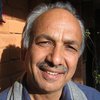
Yubaraj Ghimire
Ghimire is a Kathmandu based journalist.
- Manmohan Singh And The Churn In Nepal
- Jan 08, 2025
- Why ‘Revolutionary’ Communist PM Prachanda Went To Temples In India
- Jun 08, 2023
- Why China Is Happy With Nepal’s New PM
- Jan 03, 2023
- Prachanda Sworn In As PM: New Tie-ups In Nepal, Concern In India
- Dec 27, 2022
- Young TV Anchor As Its Face, RSP Rise Takes Nepal By Surprise
- Nov 23, 2022



